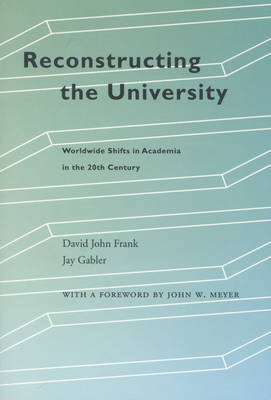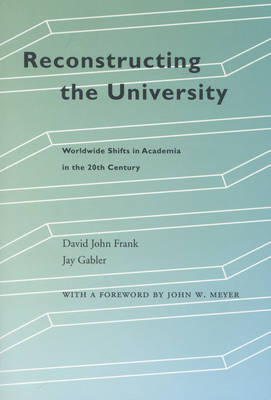
- Retrait gratuit dans votre magasin Club
- 7.000.000 titres dans notre catalogue
- Payer en toute sécurité
- Toujours un magasin près de chez vous
- Retrait gratuit dans votre magasin Club
- 7.000.0000 titres dans notre catalogue
- Payer en toute sécurité
- Toujours un magasin près de chez vous
Reconstructing the University
Worldwide Shifts in Academia in the 20th Century
David John Frank, Jay GablerDescription
Current conversations on the state of academia contain a broad sense of crisis over changes in the body of university knowledge--the decline of literature, the unbridling of ethnic studies, the growth of various applied programs, and so on. Much of the concern revolves around a perceived deterioration of the academic core in which, the thinking goes, the university's teaching and research priorities are increasingly compromised by external financial and political interests.
With data on faculty and course composition over the twentieth century for a global sample of universities, this book provides an examination unprecedented in scope and scale of changes in academia. The authors document the changing emphases accorded the branches of learning, the applied and basic divisions, and the disciplinary fields. They find deep transformations, as anticipated, but offer a new explanation for these shifts. Changes in academic focus are less the work of outside interest groups, but instead are cultural maps to the altering features of globally institutionalized understandings of reality.
Spécifications
Parties prenantes
- Auteur(s) :
- Editeur:
Contenu
- Nombre de pages :
- 272
- Langue:
- Anglais
Caractéristiques
- EAN:
- 9780804753753
- Date de parution :
- 25-07-06
- Format:
- Livre relié
- Format numérique:
- Ongenaaid / garenloos gebonden
- Dimensions :
- 161 mm x 229 mm
- Poids :
- 476 g

Les avis
Nous publions uniquement les avis qui respectent les conditions requises. Consultez nos conditions pour les avis.






